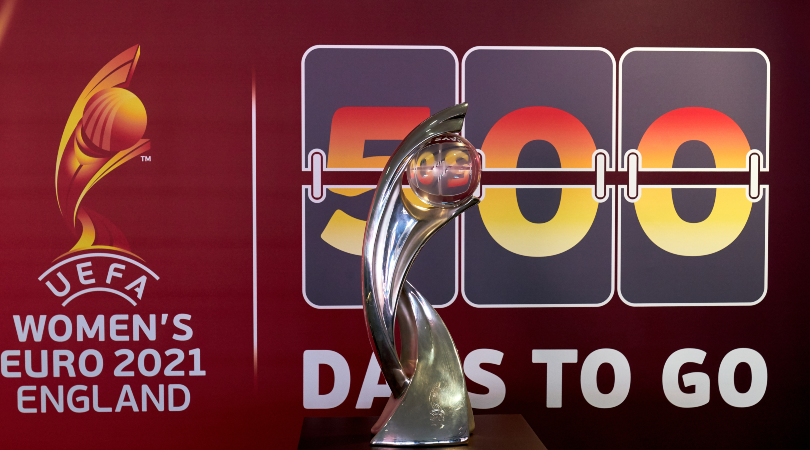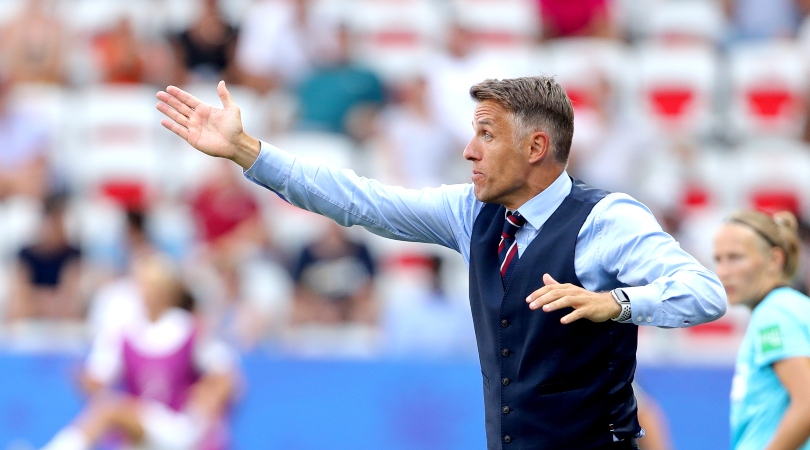Why the Euro 2020 delay is such bad news for the Women’s Euro 2021 tournament in England

Next summer’s men’s competition now finishes after the women’s one begins. This unnecessary clash suggests the latter remains an afterthought for UEFA, writes Claire Bloomfield
UEFA haven’t exactly covered themselves in glory over their handling of the forthcoming European Championships. In much like they do with their elite club competitions, the European governing body have treated the women’s tournament as little more than an afterthought.
After an emergency meeting last week they confirmed that the Women’s Euro 2021, set to be staged in England, was to be rescheduled to accommodate the men’s edition of the competition, which was postponed by 12 months as the world grapples with the coronavirus pandemic.
The lengthy statement released by Europe’s governing body announcing Euro 2020 would now take place from June 11 to July 11 2021, included a brief footnote referencing the women’s tournament, that read: “Decisions on dates for other UEFA competitions, whether club or national team for men or women, will be taken and announced in due course.”
Despite the decision to move Euro 2020 resulting in a four-day overlap with the women’s competition as things stand, it seemingly required no more than a 24-word get-out clause according to UEFA.
The organisation are still said to be working on reshuffling the football calendar, with options for the two European Championships to be played back to back in 2021, or the women’s tournament to be played the following year, both thought to be under consideration. Though with no indication thus far as to when a decision will be reached, UEFA have done little to live up to their much-hyped women’s football strategy published last year.
Postponing the Women’s Euros to 2022 would create a multitude of problems. While players could face a three-year hiatus of major international tournaments and it could also lead to clashes with qualifying fixtures for the 2023 FIFA World Cup – not that we even know where that is being played yet – the ongoing uncertainty about the future of the 2020 Olympic Games in Tokyo only adds to the complications.
Get FourFourTwo Newsletter
The best features, fun and footballing quizzes, straight to your inbox every week.
But when will these organisations learn that driving the growth of the women’s game is about more than launching expensive marketing campaigns and throwing money into grassroots projects? The commitment to women’s football must be embedded into their culture.
This was UEFA’s opportunity to show that the respective men’s and women’s tournaments are prioritised equally. Unsurprisingly, they have failed miserably.
Why couldn’t the men’s competition have been played during the winter months, for example? It would, after all, have been good practice for the 2022 FIFA World Cup played through November and December. Alternatively, Euro 2020 could have been aligned with the forthcoming African Cup of Nations in January, which would also see the top-flight leagues take a winter break. With so many possibilities on offer which would not have interrupted the women’s competition whatsoever, it’s difficult to understand UEFA’s decision.
It would be interesting to learn how many of those present at UEFA’s emergency meeting last week were either female – or at least genuinely invested in the women’s game. My guess is not enough.
While you’re here, why not take advantage of our brilliant subscribers’ offer? Get the game’s greatest stories and best journalism direct to your door for only £12.25 every three months – less than £3.80 per issue – and you’ll also receive bookazines worth £29.97!
NOW READ…
DOCUMENTARY What REALLY happened to Ronaldo before the 1998 World Cup Final – in his own words
QUIZ Can you name the Premier League top scorers from 2000 to 2009?

